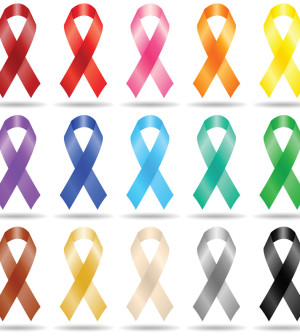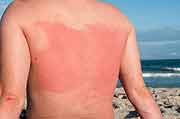- 7 Best Breads for Maintaining Stable Blood Sugar
- Gelatin vs. Collagen: Which is Best for Skin, Nails, and Joints?
- The Long-Term Effects of Daily Turmeric Supplements on Liver Health
- Could Your Grocery Store Meat Be Causing Recurring UTIs?
- Are You Making This Expensive Thermostat Error This Winter?
- Recognizing the Signs of Hypothyroidism
- 10 Strategies to Overcome Insomnia
- Could Artificial Sweeteners Be Aging the Brain Faster?
- Techniques for Soothing Your Nervous System
- Does the Water in Your House Smell Funny? Here’s Why
Online Searches for ‘Skin Cancer’ Go Up in Summer


When summer hits the United States and sunseekers mobilize, online searches for “skin cancer” rise, a new study shows.
However, it’s not clear if the higher search rates mean more cancers are being detected early, said researchers reporting online June 10 in JAMA Dermatology.
Researchers led by Dr. Kyle Amber, of MacNeal Hospital in Berwyn, Ill., tracked Google searches for the terms “skin cancer” and “melanoma” in the United States between 2010 and 2014.
They found a spike in these types of Web searches during the summer, and that summertime bump remained relatively stable over the entire study period, the team said.
Nevada had the highest number of searches for skin cancer, while Pennsylvania had the highest number of searches for melanoma, Amber’s group said.
The finding might be of use in the war against UV ray exposure and related skin cancers, the authors said.
“Because the U.S. population seeks information regarding skin cancer at a greater level during the summer months, this might be the most efficient time for educational and public health initiatives,” they wrote.
Another expert agreed, noting that skin cancer remains a leading form of the disease.
“One in five Americans will develop skin cancer during their life and the incidence of melanoma has been on the rise,” said Dr. Jeffrey Farma, co-director of Cutaneous [Skin] Oncology at Fox Chase Cancer Center in Philadelphia.
“More people are spending time outdoors and at the beach, and we see a rise in screening examinations for suspicious lesions that either the patients or friends and family recognized,” he said.
“It is important to remember to have any suspicious skin lesion evaluated by your physician, see a dermatologist for skin surveillance examinations, avoid tanning and wear sunscreen if you are going to be in the sun,” Farma said.
More information
The American Academy of Family Physicians has more about skin cancer.
Source: HealthDay
Copyright © 2026 HealthDay. All rights reserved.










